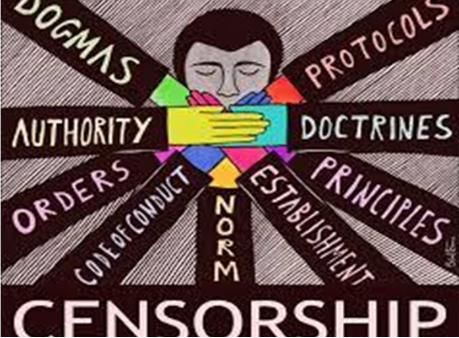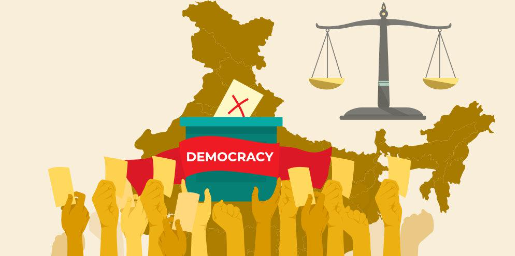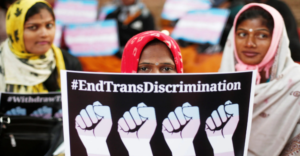INTRODUCTION
In the tapestry of global governance, democratic political systems stand as a diverse mosaic of political systems that reflect the aspirations, challenges, and complexities of societies worldwide. As of the present day, democracy has spread its wings far and wide, taking on various forms and adaptations that reflect the unique contexts of each nation. From established democracies to emerging systems, the world is witnessing a range of democratic regimes that shape the course of history, economics, and international relations.
THE DIVERSITY OF DEMOCRATIC SYSTEMS
The present world is characterized by a spectrum of democratic systems, each with its distinct features and nuances. At one end of this spectrum lie mature and well-established democracies, exemplified by countries like the United States, Canada, and Western European nations.
These countries have a long history of democracy, with democratically functioning institutions, robust rule of law, and a culture of political participation and conscious public. Citizens in these societies exercise their rights to vote, engage in public discourse, and hold their leaders accountable through regular elections and checks and balances.
On the other end of the spectrum are newer democracies, which have undergone significant political transitions in recent decades. Countries such as South Africa, Brazil, and India have made strides toward democratic governance but also grapple with challenges related to inequality, corruption, and the consolidation of democratic institutions. These democracies often navigate a complex path toward stability, drawing on their historical, cultural, and social contexts to shape their political systems.
CHALLENGES TO DEMOCRATIC REGIMES

While the spread of democracy has been a remarkable achievement, it has not been without its challenges. The present world witnesses threats to democratic political systems that range from internal dynamics to external influences.
Furthermore, the rise of disinformation in the digital age has tested the resilience of democratic political systems. False narratives, misinformation campaigns, and echo chambers can distort public perceptions, influencing electoral outcomes and eroding trust in democratic institutions. While providing a platform for greater connectivity and communication, the internet has also created fertile ground for manipulating public opinion.
Populism, for instance, has gained traction in various democracies, exploiting public discontent and undermining the checks and balances that are vital for a functioning democracy. Populist leaders often challenge established norms, institutions, and even the independence of the judiciary and media, posing a potential risk to the foundations of democracy.
DEMOCRATIC BACKSLIDING AND AUTHORITARIAN RESURGENCE
One disturbing trend in the present world is the phenomenon of democratic backsliding, where established democracies experience a deterioration of democratic norms and practices. This can include erosion of press freedom, attacks on civil liberties, and attempts to undermine the independence of regulatory bodies. Countries like Hungary, Poland, and Turkey have faced criticism for their democratic backsliding, raising concerns about the fragility of even well-established democratic political systems.
Authoritarianism has been resurgent Arianism in some regions, challenging the global momentum toward democracy. Countries like China and Russia have pursued unique forms of governance that combine authoritarian control with selective economic liberalization. These political systems often prioritize stability and economic growth over political freedoms, sparking debates about the compatibility of authoritarian capitalism with democratic values.
DEMOCRATIC INNOVATIONS AND ADAPTIONS
In response to the challenges faced by democratic regimes, various innovations and adaptations have emerged. Many nations are exploring ways to enhance public engagement and political participation through digital platforms. E-democracy initiatives, online town hall meetings, and participatory budgeting are just a few examples of how technology is being leveraged to strengthen democratic practices.
Additionally, some democracies are reimagining their political institutions to better represent the diversity of their societies. Quotas for underrepresented groups, such as women and minorities, aim to create a more inclusive political landscape that mirrors the demographics of the population.
CONCLUSION
As the present world navigates the intricate landscape of democratic regimes, it becomes evident that democracy is a dynamic and evolving concept. From well-established democracies that have weathered the storms of history to emerging systems seeking to find their footing, the diversity of democratic regimes is a testament to the complexity of human societies.
While challenges and threats persist, the resilience of democratic ideals and institutions remains a beacon of hope. The present world is witnessing a continuous dialogue between democratic principles and the evolving needs of societies, paving the way for a future where the voice of the people continues to shape the course of governance on a global scale.
– BHAWINI SRIVASTAVA
MUST READ: PATRIARCHY PLAGUING INDIA EVEN AFTER 76 YEARS OF INDEPENDENCE





